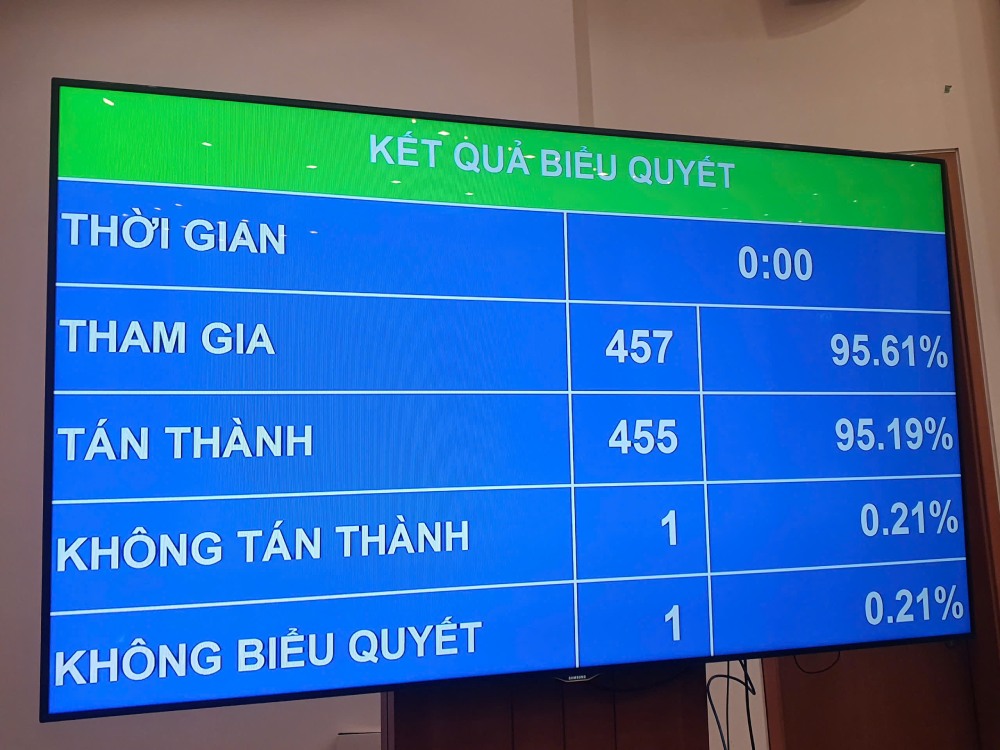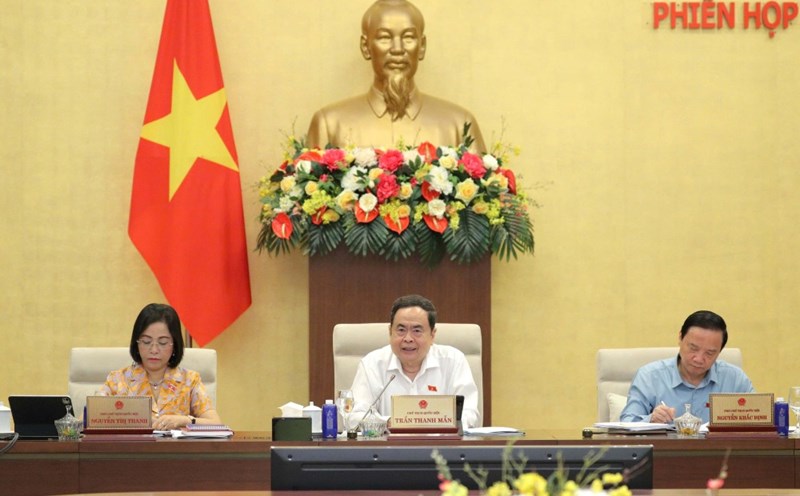Continuing the 9th Session, on the morning of June 17, with 455/457 delegates participating in the vote, the National Assembly passed the Law amending and supplementing a number of articles of the Law on Enterprises.
Reporting on the reception and explanation of the opinions of National Assembly deputies on the draft law, Minister of Finance Nguyen Van Thang informed about the issue of adding civil servants to participate in establishing and managing enterprises.
According to the Minister, some National Assembly deputies proposed to review to ensure the provisions on the subjects of establishment, capital contribution and business management in the Law on Enterprises are synchronized and consistent with the Law on Science, Technology and Innovation and Resolution No. 193/2025/QH15.
In response to opinions, the draft law has amended Point b, Clause 2 and Point b, Clause 3, Article 17 of the Law on Enterprises in the direction of stipulating subjects that are not allowed to establish, contribute capital and manage enterprises, including civil servants and public employees as prescribed by the Law on Cadres, Civil Servants and the Law on Public Employees.
Except for cases where it is implemented in accordance with the provisions of law on science, technology, innovation and national digital transformation.

Next, the Minister also reported on the content of the regulations on issuing individual bonds of companies that are not public.
Some delegates suggested considering not stipulating in the draft law specific conditions for enterprises when issuing individual bonds; at the same time, considering regulations similar to the Securities Law in the direction of assigning the Government to specify this issue in detail.
Regarding this content, in Submission No. 286/TTr-CP and during the process of explaining the opinions of delegates, the Government clarified the necessity of stipulating this content and proposed to keep the provisions in the draft law.
In Notice No. 2001/TB-VPQH, the National Assembly Standing Committee agreed to add in the draft law a provision on the debt coefficient payable on equity as one of the conditions for issuing individual bonds of companies that are not public companies to increase financial capacity for issuing enterprises.
This helps limit the risks of paying corporate bonds for both issuers and investors.
Another content is the regulation on strengthening state management in inspection, supervision and data sharing of central and local agencies.
Some National Assembly deputies proposed reviewing the regulations on the responsibilities of provincial People's Committees to ensure compliance with the Law on Organization of Local Government, ensuring publicity, transparency, and compliance with the principles of inspection and examination activities stipulated in Resolution No. 198/2025/QH15 of the National Assembly.
The Government accepted the opinions of the Economic and Financial Committee and a number of National Assembly deputies to complete the draft law to clarify the responsibility of the provincial People's Committee in organizing business registration, promulgating a process for checking the content of business registration in the area.
Thereby ensuring publicity, transparency, and compliance with the policy of "ries out a strong shift from pre-inspection to post-inspection associated with strengthening inspection and supervision" stated in Resolution 68-NQ/TW of the Politburo on private economic development, in accordance with the Law on Organization of Local Government.











